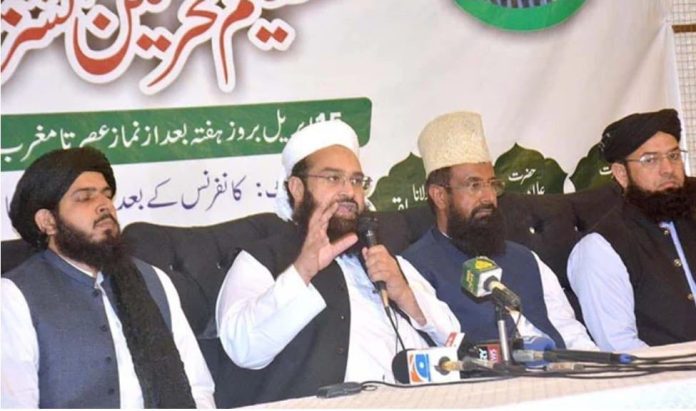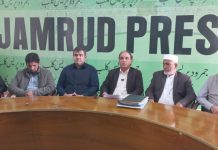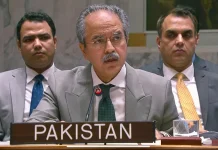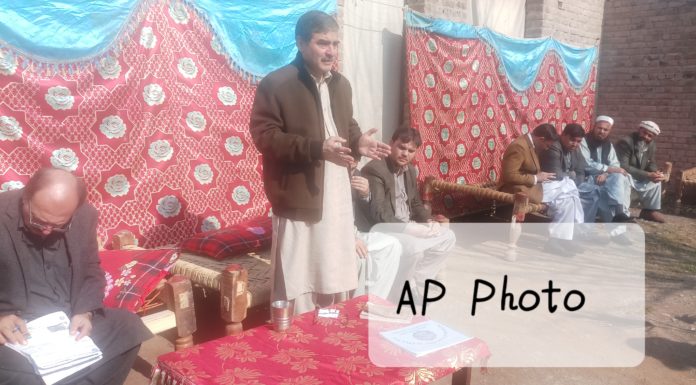Ashrafuddin Pirzada
ISLAMABAD: The Pakistan Ulema Council (PUC) fully supported a fatwa issued by the scholars that suicide attacks were prohibited (Haram) under the title of unjust killing and justified the state security institutions’ action against them.
The PUC’s support of the fatwa came during a meeting of its Central Majlis-e-Shura and Ameela held under the chairmanship of Hafiz Tahir Mahmood Ashrafi here. Over 200 members of Majlis-e-Shura and Ameela from across the country participated in the meeting.
According to the Council, the armed groups including militants engaged in actions against the state in the name of linguistics, regional, religious and sectarian identities were disobeying the injunctions of Sharia tearing apart the national unity and justified the state institutions’ action against all of them.
The Council announced organizing countrywide ‘Paigham-e-Pakistan, Ulema-Mashaykh conventions’ and carrying out a vigorous campaign for the implementation of the Paigham-e-Pakistan National Action Plan.
Keeping in view the current situation of the country, the Central Majlis-e-Shura decided that the Paigham-e-Pakistan Ulema-Mashaykh Convention will be held across the country and also urged the government to ensure full implementation of the National Action Plan to annihilate terrorism and extremism.
The meeting pointed out that national unity against extremism and terrorism was the need of the hour, as anti-Pakistan elements were once again mobilizing against the improving economic situation and stability in Pakistan and the terrorist incidents in Pakistan during the last few days were evidence of these conspiracies.
Amidst this situation, the PUC has decided to carry out a vigorous campaign at the national level for the implementation of the Paigham-e-Pakistan narrative. Similarly, the Council also demands the government that the National Action Plan should be fully implemented.
A PUC declaration after the meeting stated that leading Ulema and Mashaykh from all the religious schools of thought in Pakistan, and the most influential personalities of the Islamic world had signed the Paigham-e-Pakistan draft, in which it had categorically stated that all the sections of life, including the Ulema, and Mashaykh, will stand united with the state and the security forces and the whole nation declared full and unconditional cooperation with the armed forces and other security agencies of Pakistan in this war of national survival.
It stated that armed sectarian conflict and the method of imposing one’s ideas on others based on force was contrary to the laws of Shariat and amounted to fanning chaos in the land.
“It is a national crime according to the constitution and laws of the Islamic Republic of Pakistan,” the declaration said. It said Pakistan was an Islamic state and the government and security forces were bound by the constitution of Pakistan and took oath according to it; therefore, armed actions against the government or security forces of Pakistan fell under the category of rebellion, which was prohibited by law.
It further stated that it was undoubtedly the first responsibility of the government to fully implement the Islamic provisions of the constitution and a peaceful and constitutional struggle to fulfil this responsibility was certainly the important duty of Muslims, but for this purpose, taking up arms was a mischief in the land and it was strictly prohibited in Hadiths of the Holy Prophet (PBUH) and those involved in this armed rebellion or who helped or supported it in any way were in violation of the words of the Holy Prophet (PBUH). It said the action taken by the security forces and agencies against such miscreants had the full support of the nation.











